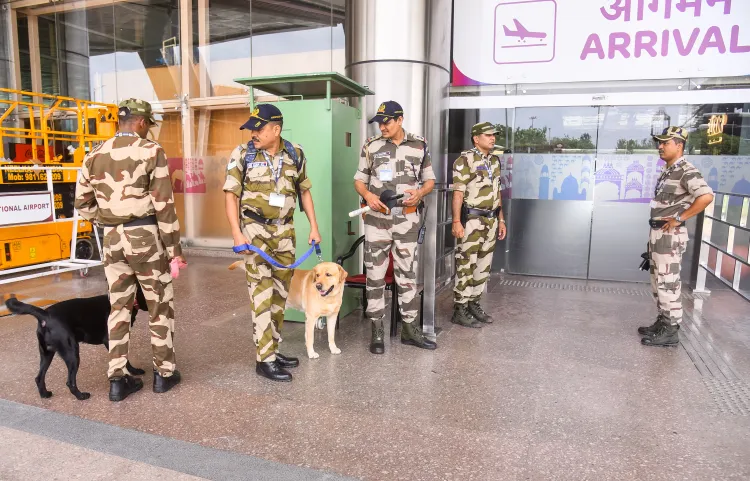Is the ISI Behind the Recent Surge in Hoax Bomb Threat Calls?

Synopsis
Key Takeaways
- Significant rise in hoax bomb threat calls across India.
- Intelligence agencies suspect ISI involvement in orchestrating these threats.
- Hoax calls target schools and airlines, causing operational disruptions.
- Each hoax call can lead to substantial financial losses for airlines.
- Indian authorities are enhancing measures to counteract these threats.
New Delhi, Nov 1 (NationPress) Recently, a wave of hoax bomb threat calls has emerged, with the most recent incident involving the Enforcement Directorate (ED) office in Chennai, which was also confirmed as a hoax.
Just two weeks earlier, a bomb threat was made to the Chennai residence of Vice-President C P Radhakrishna, which was likewise false.
While local police are addressing these incidents on a case-by-case basis, central authorities are investigating the potential for a wider conspiracy. In particular, they are focusing on numerous hoax threats directed at schools, primarily in Delhi. However, the most troubling are the threats made to airlines, which have disrupted operations, leading to significant financial losses and complications.
An official from the Intelligence Bureau notes that some threats appear personal, likely stemming from individuals with psychological issues or personal grievances. Nevertheless, threats against schools, airlines, and the VP's residence are considered part of a broader conspiracy.
Authorities have discovered that these threats are orchestrated psy ops, aimed at instilling fear and chaos. The operations, especially those targeting schools and airlines, are meticulously calculated to incite panic as well as financial repercussions.
The ISI operates a specific division responsible for executing such psychological operations within India. For instance, the distress migration of northeastern Indians in 2012 was initiated by an electronic message from the ISI's Pakistani wing. In 1989, similar actions included broadcasting television footage of anti-communist movements in Europe, inciting Kashmiri Muslims to rise up against New Delhi.
Intelligence sources indicate that the ISI's operations will continue. Following the embarrassment of Operation Sindoor, Pakistan seeks to tarnish India's reputation, employing every tactic available. Officials warn that more hoax calls designed to create disorder can be expected in the near future.
Law enforcement acknowledges that in approximately 90% of cases, they recognize these calls as hoaxes. Yet, standard protocols must be observed, resulting in considerable inconvenience. Schools receiving such calls must remain closed for the day until clearance is given, and airlines must ground or reroute flights during investigations. This not only causes disruption but also leads to significant financial damage to the airline sector—exactly what the ISI aims for.
Statistics reveal a dramatic increase in hoax calls, indicating a well-coordinated effort. In 2020, only four airline-related hoax incidents were recorded, while a total of 804 hoax calls have been logged in the past five years. In 2024 alone, there were 709 cases reported, suggesting a substantial rise. Notably, 130 hoax calls were made within just nine days in December 2024.
By targeting the aviation industry, the ISI seeks to inflict massive financial harm, with each hoax call costing airlines over Rs 3 crore. Additionally, such threats instill fear in travelers, undermining their confidence to fly. This strategy aims to weaken an already struggling industry and ultimately harm the Indian economy, according to officials.
Experts assert that Indian agencies are implementing measures to counter this rising threat, including investments in advanced call tracking and Artificial Intelligence-driven call analysis. Additionally, efforts are being made to enhance quantum computing and aviation cybersecurity frameworks.










